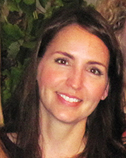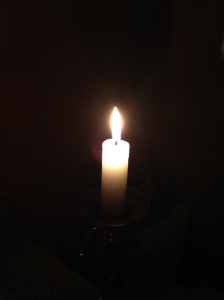Today’s post is by Savannah Kate Coffey
“Hark! How the winds have changed their note!
And with warm whispers call thee out;
The frosts are past, the storms are gone,
and backward life at last comes on.”
~Henry Vaughan
Summer has returned, both to our Northern Hemisphere and to my life after a protracted season of difficulty. Summer’s approach has been halting, in fits and starts, but the change is real and the days are sunny and hopeful. Winter’s surrender and fecund Spring have given birth to ripe summer beauty. My heart is filled with deep gratitude, wonder, and…fear.
How difficult it can be to enter fully into happiness! I may be as afraid to be happy as I am to suffer. Pain, though unwelcome, feels solid and real. We daily confront the violence of our world, and the losses of our lives. We know pain’s tendency to take up residence in our bodies and spirits. But happiness? Happiness seems kin to the fleeting fireflies, enchanting but rather short-lived.
The Book of Common Prayer implicitly acknowledges this dilemma in a beautiful Compline prayer. It reads in part: “Tend the sick…give rest to the weary, bless the dying, soothe the suffering, pity the afflicted, shield the joyous, and all for your love’s sake….” We entreat God to gently care for the sick, weary, dying, suffering, the afflicted, and the joyous. There is as much vulnerability in joy as there is in pain. Our hearts may be broken open just as easily by great delight as by sorrow. We often deny the full experience of happiness thinking it will soften our fall, or we choke the tender blossoming in our need to grasp the beauty.
“It is dark because you are trying too hard. Lightly child, lightly. Learn to do everything lightly. Yes, feel lightly even though you’re feeling deeply. Just lightly let things happen and lightly cope with them. So throw away your baggage and go forward. There are quicksands all about you, sucking at your feet, trying to suck you down into fear and self-pity and despair. That’s why you must walk so lightly. Lightly my darling…”
~Aldous Huxley
What freedom of spirit might come from holding all of life’s experience more lightly! This is not to deny the suffering in our world and the intense engagement required, nor is it to refuse joy’s courtship and lovely gifts. My colleague’s wife is a yoga teacher and she encourages her students to move solidly into a posture, but then to soften just a little and find the ease within the position they have taken. We can embrace the gifts of happiness fully and then find the freedom to smile at ourselves when we realize how tight is our grip and how serious our determination.
At a dinner party with dear companions, Jesus sees that his friend Martha is worried about so many things. Only one thing is necessary he says: to simply share presence, offering her open heart (this is perhaps the essence of both prayer and love). He knew the cherished meals together would soon end and the loss would be great. Maybe she knew too. Maybe he whispered as she passed by, tightly clutching an armful of plates, a strained smile upon her face, “Lightly, my darling.” I hope she sat down, just for a few minutes, and fully received the joy and love in her midst. In the shadow of the cross to come I hope she was sustained by those irreplaceable moments of delight. May we be given the grace to wrap our arms around joy and then gently soften our grasp. In all our experience, in both the happiness and the sorrow, we are held in the loving, unitive heart of Reality, held by One who promises to be fully present no matter the season.
 Savannah Kate Coffey is a graduate of Columbia Theological Seminary and Shalem’s Leading Contemplative Prayer Groups and Retreats Program for which she now serves as adjunct staff. She lives and writes in South Carolina.
Savannah Kate Coffey is a graduate of Columbia Theological Seminary and Shalem’s Leading Contemplative Prayer Groups and Retreats Program for which she now serves as adjunct staff. She lives and writes in South Carolina.








